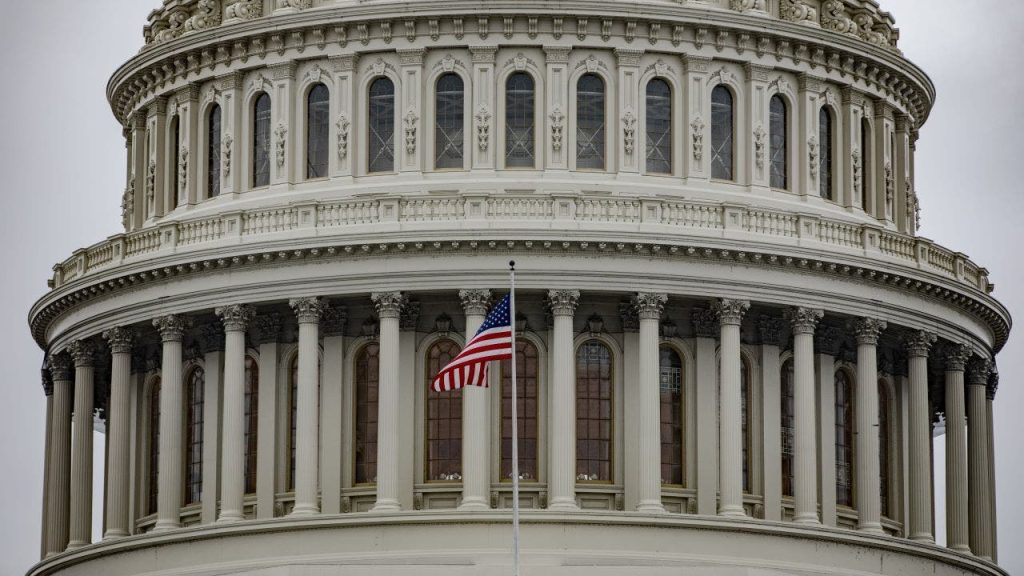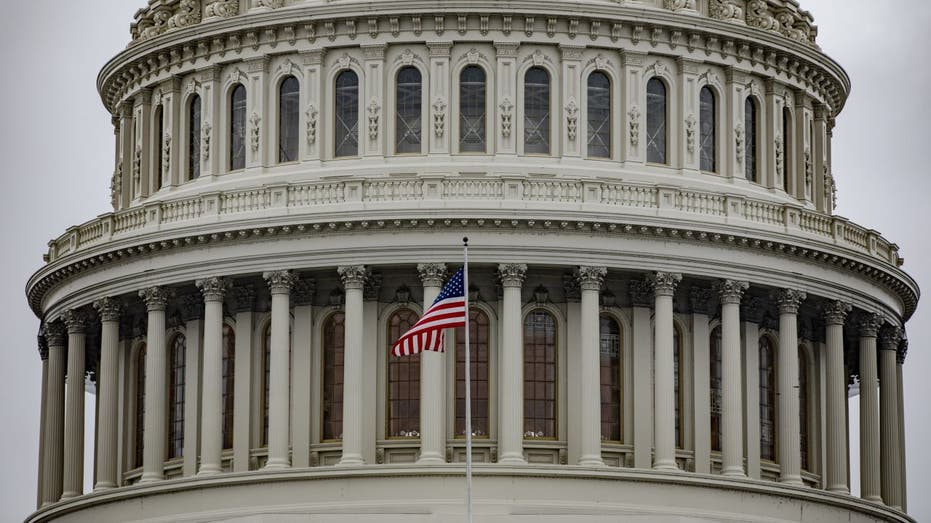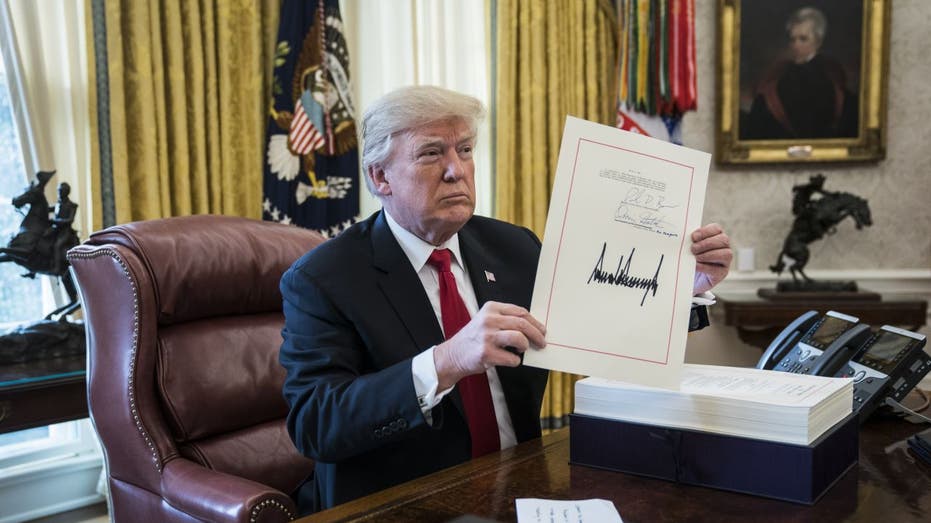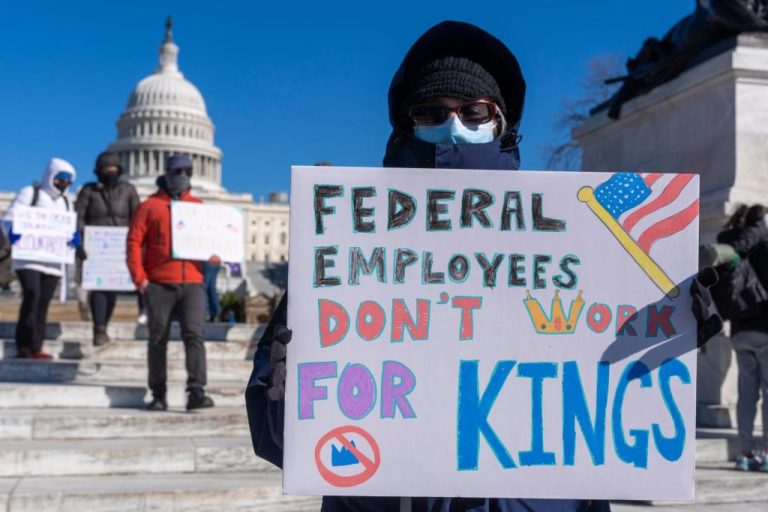
“Kudlow” panelists Sandra Smith, Taylor Riggs and Gerri Willis analyze the U.S. economic outlook.
Senate Republicans are expected to get news this week that will play an important role in shaping their plans for moving forward with their tax-cut package and prevent the expiration of key provisions of the Tax Cuts and Jobs Act of 2017, which would lead to trillions of dollars in tax increases starting next year.
GOP lawmakers are awaiting a decision by the Senate parliamentarian that will determine whether they can draft their tax bill using what’s known as a “current policy baseline” versus the current law baseline required by law for tax and spending bills using the reconciliation process.
Under a current policy baseline, tax cuts and other expiring policies are treated as if they’re already permanent, so that by extending them, they don’t increase the budget deficit.
By contrast, the current law baseline estimates the budgetary cost by assuming that programs and policies expire at the date prescribed by law, meaning that extensions can carry an additional deficit cost.
TRUMP ALLIES MAKE PUSH FOR PERMANENT TAX-CUT PLAN IN CONGRESS

Republican senators are waiting for a key decision by the Senate parliamentarian related to their tax-cut plans. (Samuel Corum/Getty Images)
A decision by the Senate parliamentarian allowing the use of a current policy baseline would make it easier to advance the tax-cut extensions, which would cost about $4 trillion based on the current law framework.
That’s because budget reconciliation rules prevent legislation from increasing budget deficits outside a 10-year budget window, requiring more spending cuts to comply with those rules and move the legislation through Congress on party-line votes.
GOP senators could still pursue a current policy baseline if the parliamentarian denies their request by getting 60 votes to overrule the decision. However, that would require seven Democrats to vote in favor, assuming all GOP senators do so, which is an outcome that’s unlikely to play out for a partisan bill.
US FACES DEFAULT RISK IN AUGUST IF DEBT LIMIT ISN’T RAISED, CBO ESTIMATES
Sen. Steve Daines, R-Mont., told FOX Business’ Hillary Vaughn that “the reason they need to be made permanent is because tax cuts are a means to an end, and that’s economic growth. That’s wage growth. We’ve got to remove the uncertainty of Washington that we have right now. There’s a $4 trillion tax increase looming.”
Senate Banking Committee Chair Tim Scott, R-S.C., told FBN that lawmakers want to get the extension of the Tax Cuts and Jobs Act completed before the end of this tax season.
The Senate could start considering a budget resolution that kicks off the reconciliation process as soon as this week.
US GOVERNMENT’S FISCAL STRENGTH DETERIORATING, MOODY’S WARNS

President Donald Trump signed the original Tax Cuts and Jobs Act into law in 2017, which has some key policies set to expire at the end of 2025. (Jabin Botsford/Washington Post via Getty Images)
The U.S. Chamber of Commerce, along with 492 state and local counterparts as well as national trade associations, urged Congress in a February letter to use a current policy baseline for tax cuts.
“Adopting a current-policy baseline would avoid a $4 trillion dollar tax increase on American families and employers by creating a pathway for Congress to make the TCJA permanent,” the cosigners wrote in their letter. “Doing so would provide businesses the certainty and stability they need to make the long-term investments that drive growth, accelerate productivity, and increase prosperity across all segments of the economy.”
Budget hawks have criticized the current policy approach as a “budget gimmick” that would create a precedent for Congress to increase budget deficits and grow the national debt even more in the future without the guardrails of current reconciliation rules.
GET FOX BUSINESS ON THE GO BY CLICKING HERE
“The current-policy baseline approach is a budget gimmick that would allow for increases in the deficit without proper accounting,” wrote the nonpartisan Patrick G. Peterson Foundation. “Applying the current-policy baseline would not only be fiscally irresponsible in terms of this year’s tax debate, but it would set a dangerous precedent for the future, potentially opening the door to unknown trillions more in added debt in the years ahead.”
FOX Business’ Hillary Vaughn contributed to this report.





